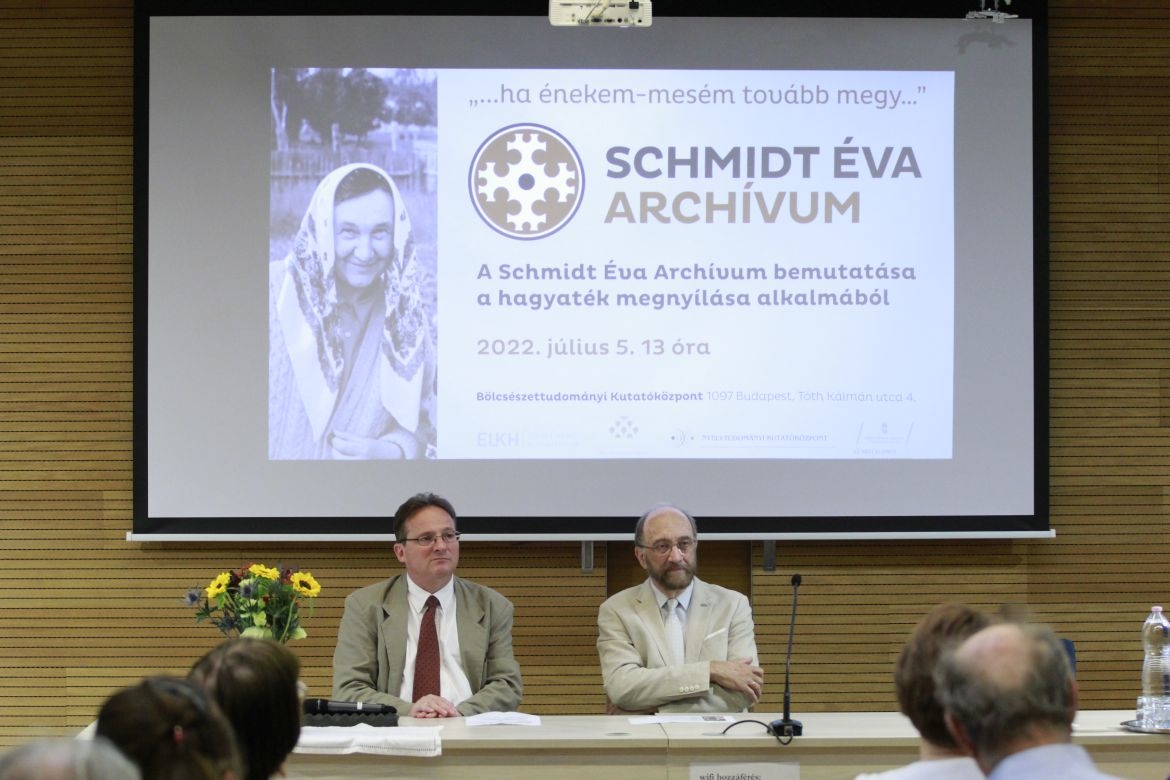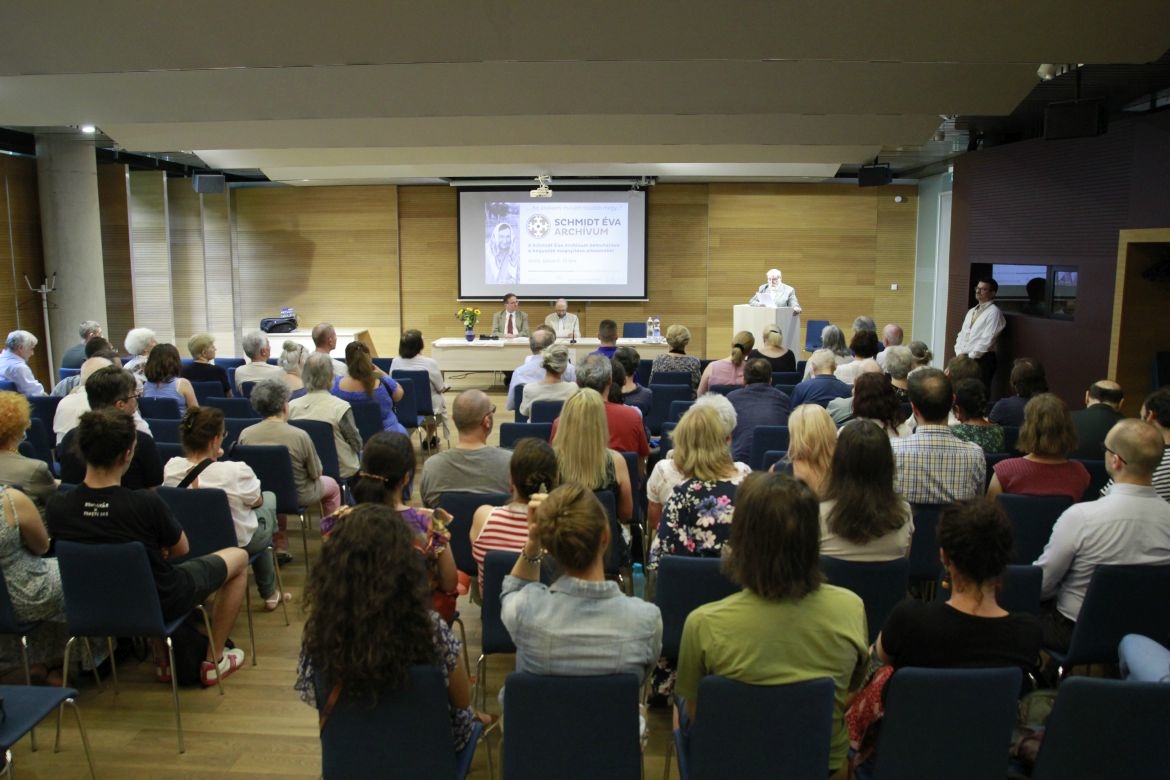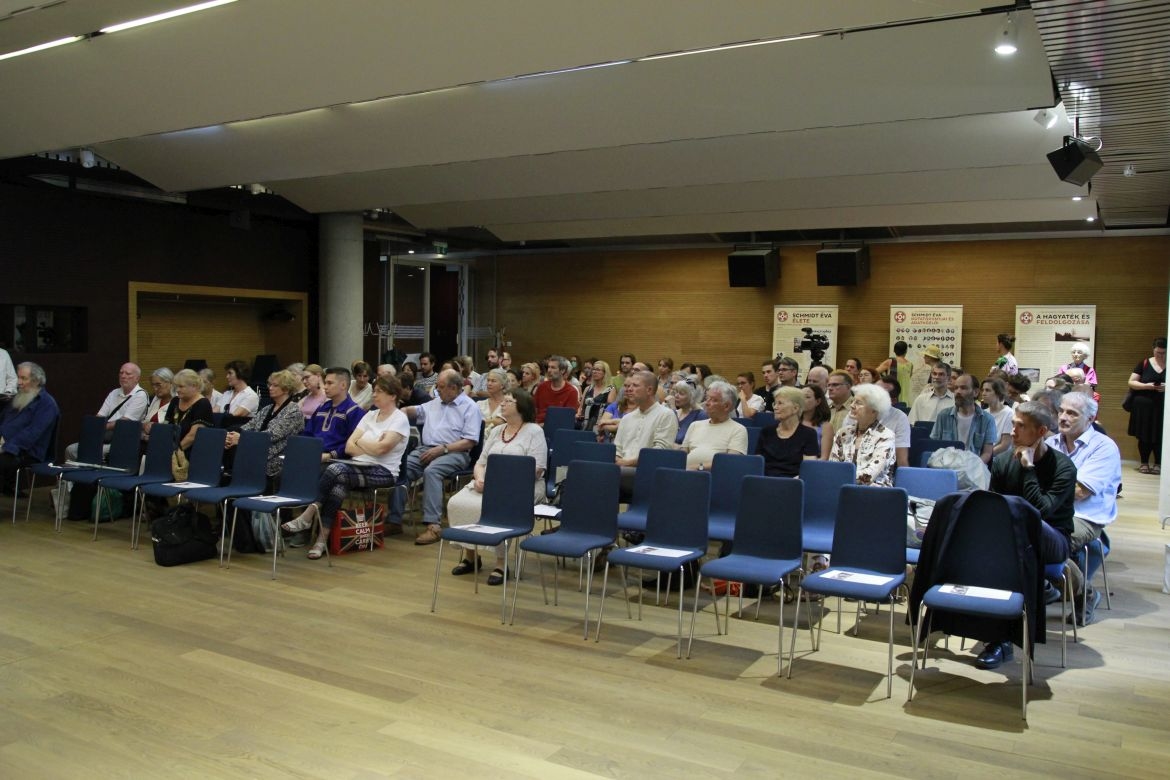Researchers of the ELKH Research Centre for the Humanities (RCH) and the ELKH Research Centre for Linguistics (NYTK) launched two projects involving the scientific processing of the legacy work of linguist and ethnographer Éva Schmidt in 2022. She was an outstanding researcher of the Obi-Ugric people and languages leaving behind a very rich legacy, however she had placed an embargo on her collections for 20 years before she died. The aim of the researchers involved in the projects is to organize and publish her legacy in the language of the original collections, as well as in Hungarian, English and Russian translations, on a multilingual website.
The plans also include the publication of a book about the life and expeditions of the famous linguist-ethnographer, as well as her writings on folklore and linguistics topics. The projects implemented with the support of ELKH and NKFIH, were presented to interested parties at an event held in July 2022.

Éva Schmidt (Budapest, 1948 – Khanty-Mansiysk, 2002) founded a folklore archive in Western Siberia in 1991 as an employee of the Ethnographic Research Institute of the Hungarian Academy of Sciences in order to document the language and culture of Khanty and Mansi. Under her supervision, a collection was created of tremendous linguistic and ethnographical value. However, before her death, the author had it locked away for 20 years, which meant that its processing could only begin in 2022. In a broader sense, the legacy includes Éva Schmidt’s entire research career, her previous (1970, 1980, 1982, 1990–1991) collections, publications, notes, documented lectures, interviews, professional reports, volumes, films made with her participation, and elaborations of other people’s collections.
The task of the projects is to review and archive this legacy, to electronically record and organize previously undigitized materials into a database, to make them searchable, and then to process the selected collection units. One particularly priceless part of the archive is a complex documentation of the northern dialects of the endangered Khanty language, covering several topics and fields, in the form of a huge amount of audio and video recordings. Significant changes have taken place in the history of endangered languages during the time that her legacy work was locked away. This means that the processing of the material now being opened up must begin as soon as possible, as the task cannot be solved without access to appropriate language skills and in consultation with native speakers. Another fundamental undertaking of the projects is the preservation of archival materials at an appropriate technical level.

After the editing of the text, the implementation of the long-term main goal of the project can begin, with the inclusion of the legacy work in scientific circulation, in part through its publication, and also through scientific analysis and elaborations based on Schmidt’s work in the fields of folklore, ethnography, musicology and linguistics. One separate element of the research focuses on language-pair-specific and language-pair-independent neural network analysis based on a large amount of prose text corpus. This method represents the most modern version of machine translation procedures, which describes the context of occurrences of words found in different sentences, and based on these, provides information about the ‘rules of use’ of each word. This analysis and machine translation support can also be of great help during subsequent text processing.
The aim of the researchers is to make available the folklore collection of Éva Schmidt from Khanty and Manysi in Hungarian, English and Russian translations in addition to the original language, as well as to prepare scientific elaborations in certain areas. As the end result of the international cooperation between institutions and fields, the specialists will publish the collections on a multilingual website, where, in addition to Éva Schmidt’s publications, professional elaborations based on the published material are also set to be included. The folkloristic and linguistic writings of the renowned ethnographer, as well as selections compiled from folklore texts, will also be published in print form, and a separate volume is being prepared on Éva Schmidt’s life, expeditions and the history of the North Khanty Folklore Archive founded by her.

The projects were presented on July 5, 2022, at an event entitled Presentation of the Éva Schmidt Archive on the occasion of the opening of her legacy. After introductory remarks from the directors-general Balázs Balogh (RCH) and Gábor Prószéky (NYTK) and the reminiscences of Mihály Hoppál, professor emeritus at the RCH Institute of Ethnology, Eszter Ruttkay-Miklián, scientific research fellow at the Hungarian Research Centre for Linguistics and the Institute of Ethnology’s Research Centre for the Humanities, gave a presentation on Éva Schmidt’s research activities and collected work, the philosophy behind them, and the richness of her legacy. Márta Csepregi, NYTK professor emeritus, presented the system of Obi-Ugric folklore genres to the participants. Mária Sipos, senior research associate at NYTK’s Institute for Historical and Uralic Linguistics, spoke about the processing of individual songs and the division of labor between the two projects. Katalin Lázár, retired senior researcher at the RCH Institute of Musicology, detailed the problematic points of the musical notation of Khanty songs. Cartographer Zoltán Gulyás, a staff member of the RCH Institute of Ethnology, discussed how he displayed the data he collected on the map. In addition to the presentations accompanied by textual, pictorial, map, audio and musical illustrations, Éva Schmidt’s life, work, and the goals of the projects were also presented on individual posters.
Attendees then had the chance to watch Zoltán Füredi’s documentary A hagyaték (The Legacy), before a discussion with the director and actors from the film (Márta Csepregi, Eszter Ruttkay-Miklián, István Sántha).
More information about the research in Hungarian can be found on the website of the Institute of Ethnology.


